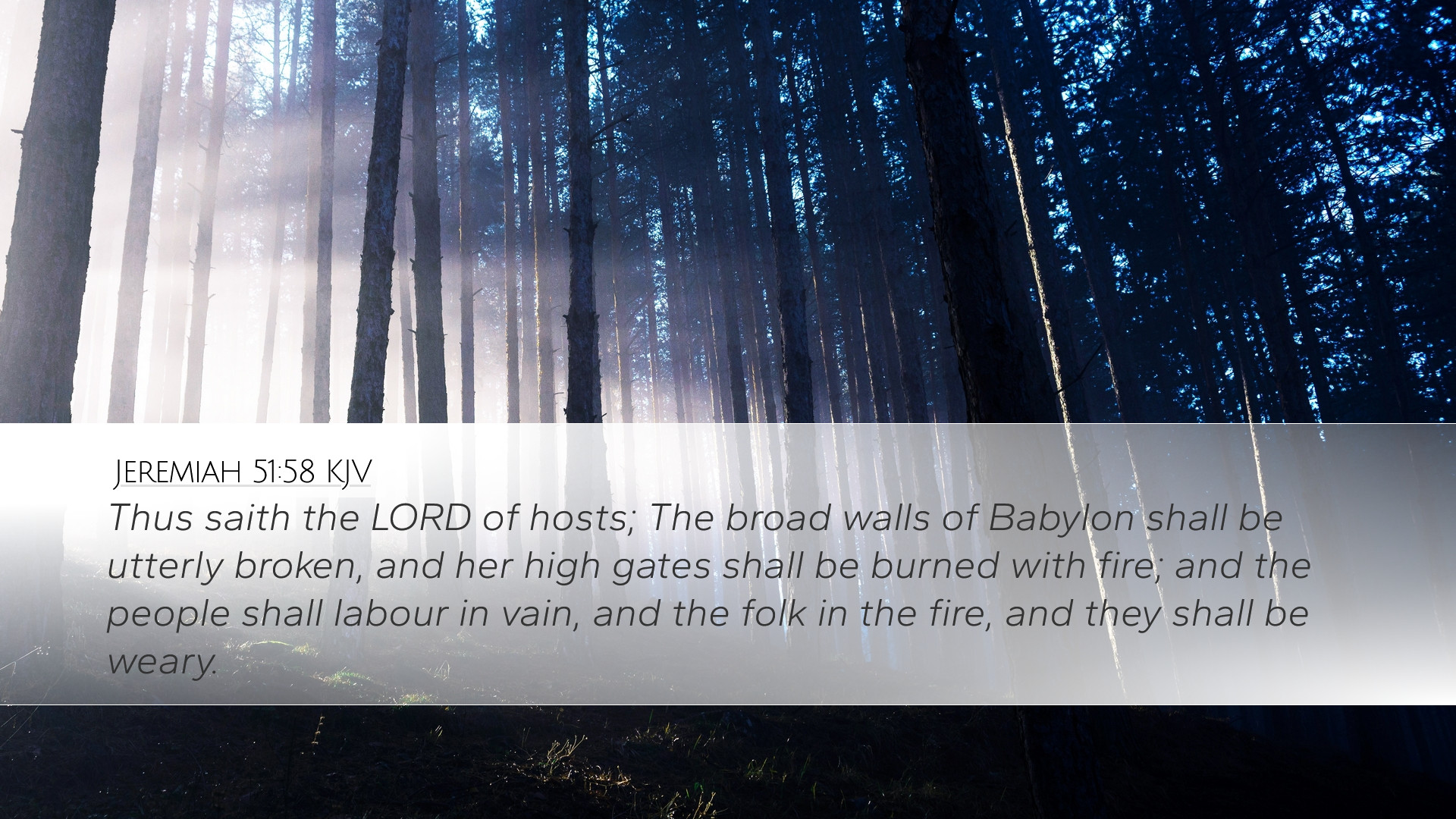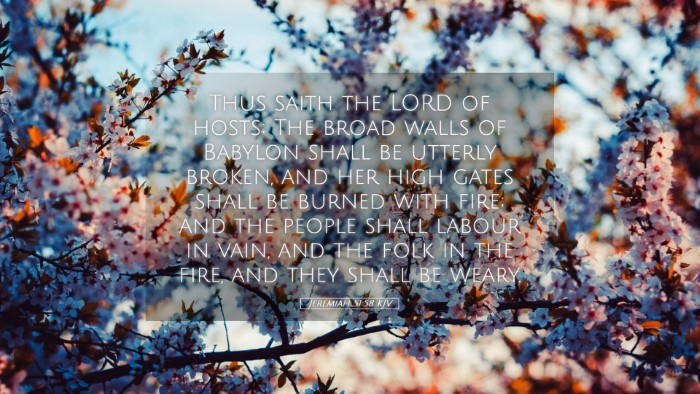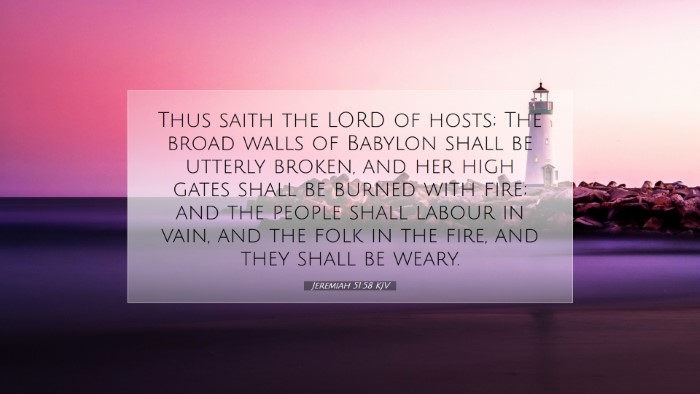Commentary on Jeremiah 51:58
Verse: "Thus saith the Lord of hosts; The broad walls of Babylon shall be utterly broken, and her high gates shall be burned with fire; and the people shall labor in vain, and the folk in the fire, and they shall be weary."
This verse encapsulates God's judgment against Babylon, emphasizing the impending destruction of a great empire built on pride and oppression. Through a combined analysis of thought from esteemed public domain commentaries, we delve into the prophetic implications and theological significance of Jeremiah 51:58.
Contextual Overview
The Book of Jeremiah stands as a pivotal text that depicts the prophetic ministry of Jeremiah during the crucial period of Judah’s decline. In this chapter, the focus shifts prominently towards Babylon, which had become the dominant world power and a symbol of human pride and opposition to God’s will.
The Prophesied Destruction
1. **Divine Pronouncement**
Matthew Henry emphasizes the certainty and authority of God's word in this verse. The phrase "Thus saith the Lord of hosts" instills confidence in the prophetic declaration. It highlights that this destruction is not a random occurrence but a predetermined act of divine justice against Babylon.
2. **Physical Destruction**
- Albert Barnes points out the vivid imagery of destruction—the "broad walls" and "high gates" symbolize both security and pride. Their destruction signifies not just a physical downfall but a shattering of the very essence of Babylonian strength and arrogance.
- Adam Clarke elaborates on the futility of labor against the divine decree. He notes that despite Babylon’s might and fortified structures, their efforts to withstand God’s judgment will be in vain: "the people shall labor in vain." This phrase warns against the futility of opposing God's will.
Theological Implications
1. **God’s Sovereignty**
This prophetic utterance serves as a stark reminder of God's sovereignty over nations. The impending destruction of Babylon illustrates that no empire, no matter how powerful, can defy the will of God. The specific mention of laboring "in vain" (Jeremiah 51:58), as noted by Matthew Henry, reflects a broader theological tenet that in God's providence, human endeavors are ultimately futile when they stand in opposition to divine intentions.
2. **Symbolism of Fire**
Adam Clarke draws attention to the mention of fire, which has often been a biblical symbol of divine judgment and purging. In this context, the fire that will burn the gates signifies severe judgment leading to purification through destruction. Additionally, it alludes to the idea of refinement through trials, albeit applied to those who persist in sin.
Historical Context
Understanding the socio-political climate during Jeremiah’s time enhances the comprehension of this prophetic message. Babylon constituted a formidable empire characterized by its magnificence and dominance over Israel. Their military might had led not only to the conquest but to the exile of God’s people, which is further elaborated in the writings of Albert Barnes. Thus, the prophecy of Babylon's fall carried significant weight not only as a warning to the Babylonians but also as hope for the Israelites under oppression.
Exhortation for Believers
For contemporary readers, this verse serves as an exhortation to maintain faith in God’s justice. Matthew Henry stresses that even amid seeming despair and the triumph of evil, believers should trust that God's plans will ultimately prevail. This should embolden the faithful to immerse themselves in God’s promises and recognize the temporal nature of worldly power.
Application for Pastors and Leaders
Pastors and church leaders can draw several insights from Jeremiah 51:58:
- Proclamation of Truth: Just as God’s word was pronounced through Jeremiah, leaders are called to boldly proclaim God’s truth, understanding that it may challenge current powers and systems.
- Encouragement of Endurance: In seasons where the ‘Babylons’ of this world seem invulnerable, leaders are to encourage their congregations to endure and labor on, rooted in the belief that God's judgment will come.
- Call to Repentance: This verse underscores the need for individuals and nations to reflect on their ways and repent from a path opposing divine principles. Engaging the congregation in this call could serve to stave off potential judgments.
Conclusion
Jeremiah 51:58 serves as a powerful reminder of God’s sovereignty and justice. It underscores the reality of divine judgment against pride, arrogance, and oppression while also offering hope to the oppressed. The insights from public domain commentaries enrich our understanding, urging us to reflect on the greater themes of judgment, redemption, and the ultimate triumph of God over earthly kingdoms.


